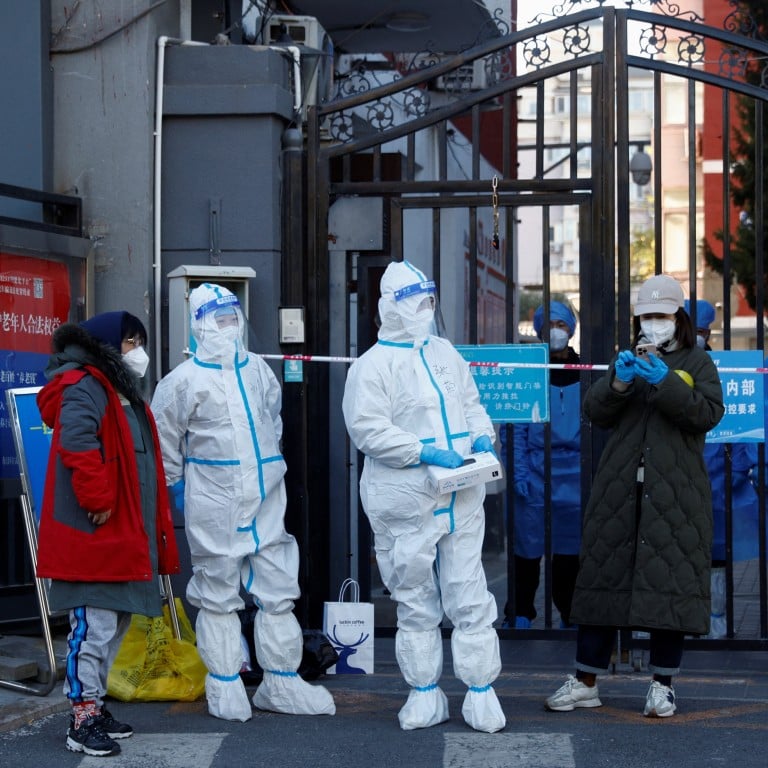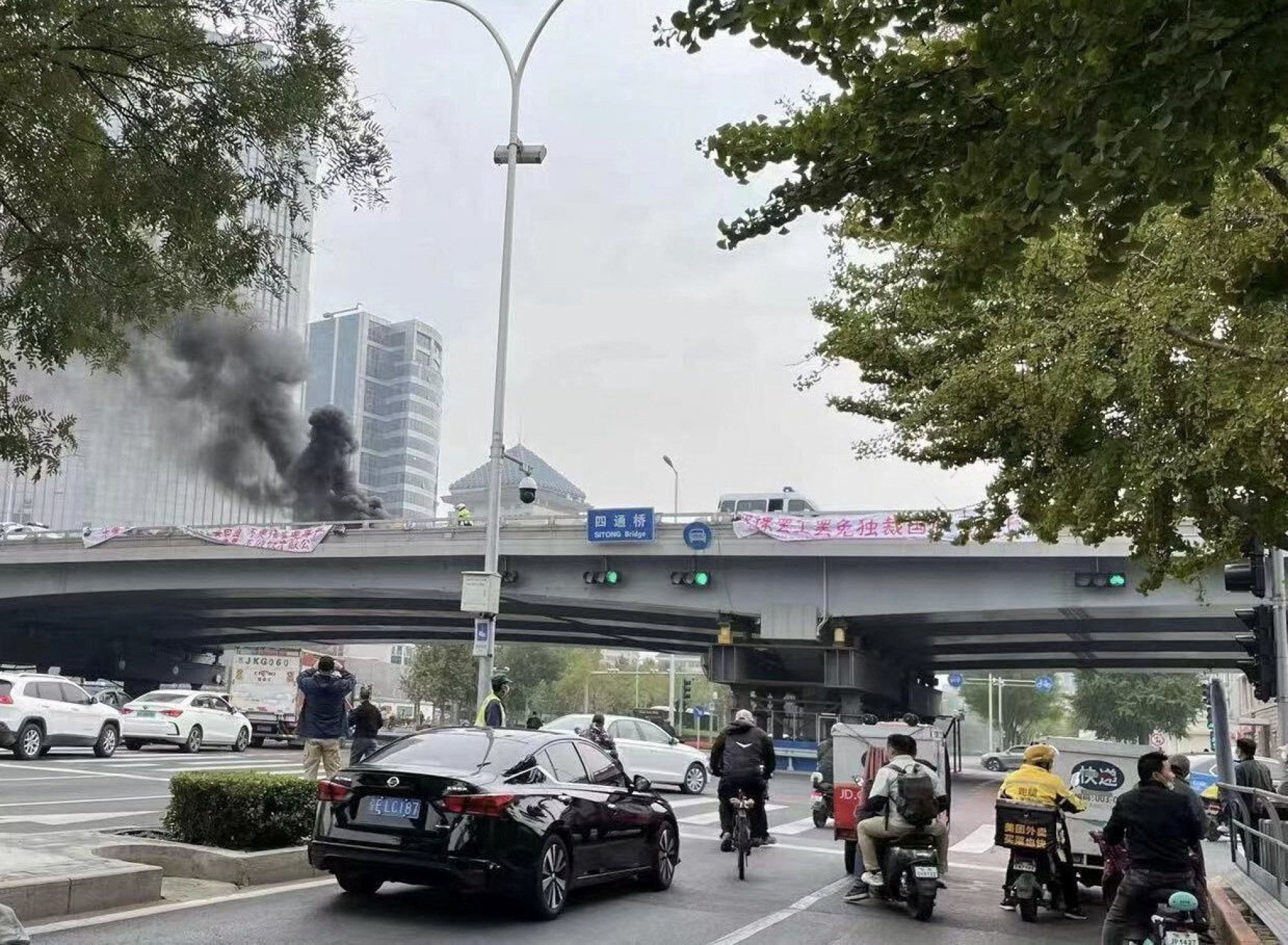
How will China’s ‘zero-Covid’ policy affect public support for the government? It’s complicated
- Chinese people have generally given the central and provincial governments high marks for their handling of the pandemic, but that is starting to shift
- Frustration over persisting with the ‘zero-Covid’ policy is starting to show through, threatening to erode hard-earned public trust
Has China’s handling of Covid-19 increased the government’s popularity or decreased it? I find the question fascinating and confusing.
In some ways, the result wasn’t that surprising. The 2018 World Values Survey found that 95 per cent of Chinese citizens trusted their national government and 69 per cent their local government. In contrast, only around 20 per cent of Americans trusted their national government in the same year.
One striking sign of discontent came from “Bridge Man”. On October 13, a lone man hung banners from Sitong Bridge in Beijing, protesting against Xi and the zero-Covid policy. One banner read, “I don’t want Covid-19 testing; I want to eat. I don’t want lockdown; I want freedom. I don’t want leaders, I want to vote. … Don’t be a slave; finally become a citizen.”

The fact this rare protest took place shows the depth of resentment among ordinary people. I am certain that many Chinese, especially those living in small towns and the countryside, still have faith in the government. Authorities should appreciate the fact.
If the zero-Covid policy continues and the economic downturn worsens, resentment is likely to grow. And the government – with Xi at the helm – could resort to even more draconian measures to maintain control.
As the old saying goes, people are like water and the regime is like a boat. Water can carry a boat but it could also capsize it.
I hope the Chinese government tries harder to listen to the public and does not abuse their trust. After all, people are the critical force who will ultimately decide the future of any regime.
Lijia Zhang is a rocket-factory worker turned social commentator, and the author of a novel, Lotus


